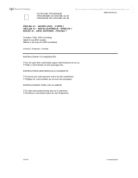Language is always changing and the purpose of this text, is to inform us about the changes in languages around the world. For example, using English and Hindi/Chinese/Arab language to make Hinglish, Chinglish and Arabizi. The author mentions that this "code switching" is liked by the language experts, saying "It is perfectly normal and linguistically fascinating..". Instead of being incomplete or just a "copy" of the English Language, experts mention that this language is really a sign of resiliency and creativity. Some even say that they feel like code switching is part of their daily life, and they don’t find it abnormal as they do it all their time.
During the text, Deena Kamel’s tone is serious and is used to communicate to people around the world that globalization is a huge cause for the variations of English. Globalization seems to be the main fact that is affecting the change for the English language, helping with the Social Networks that making it easier to share this language variation; 'Hinglish, a lively hybrid spread quickly by the Internet and satellite channels, is the language of globalization'. This quote says that Hinglish is becoming really popular over the internet and on the media, and it is the language that is becoming globalized.
As we move down the text, we can see that there is a massive question that the writer is trying to make us think about, and the question is do people from other countries or other countries learn English and make it as their first language? And the answer is given here, by an Indian writer. Raja Rao writes: "We cannot write like the English. We should not. We cannot write only as Indians. Our method of expression therefore has to be a dialect which will some day prove to be as distinctive and colourful as the Irish or American." In other words, people can’t say no to their origins or culture, as culture determines who you really are, and you were born this way, it is your true identity, so Indian people will always be Indian, as I will always be Chinese.
The author refers of English as a sponge language, because since it has been written around the year 700, it has adapted words from languages such as Norse, French, Latin, among others. Jack Chambers (professor of sociolinguistics at the University of Toronto) mentioned that English is an amazingly tolerant Language, because it has traveled all around the world and having been mixed-up with so many cultures and influences.
In my opinion, I think that Deena Kamel has an interesting view of language change, as she thinks that people have been creative and also have been modifying the English Language in a good way. I believe what the text mainly proposes, is about the common misconception of the varieties of English as "worse" than the "common" one. They are just another type of English, that's all.








